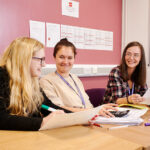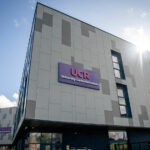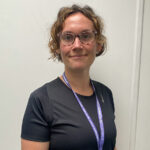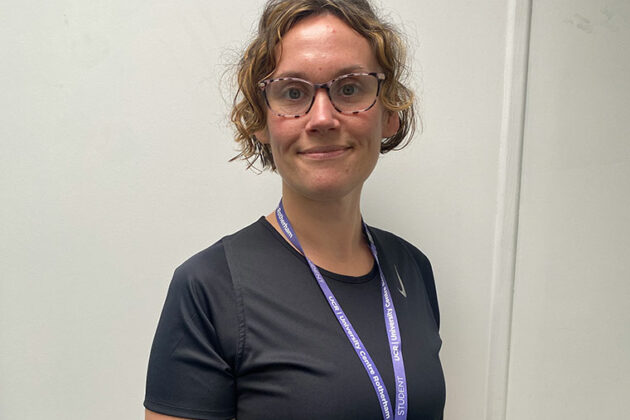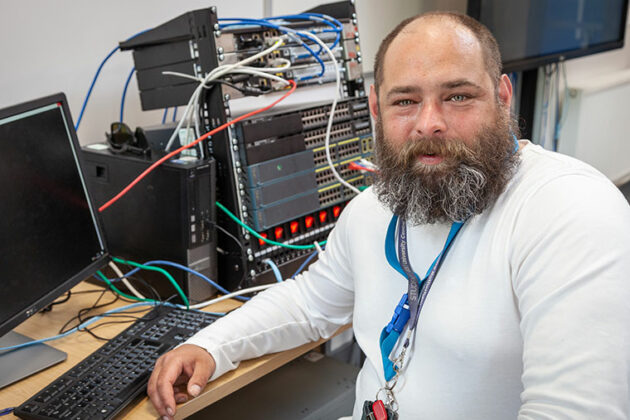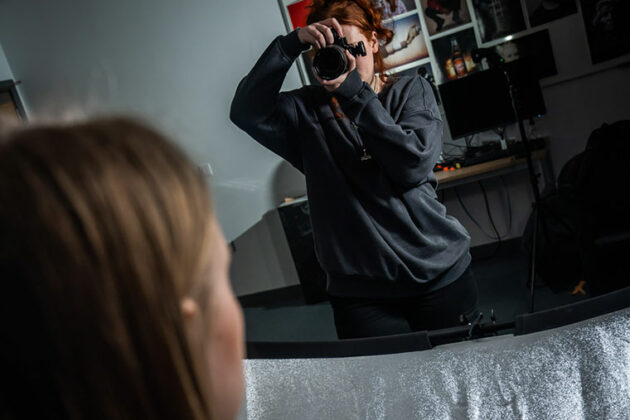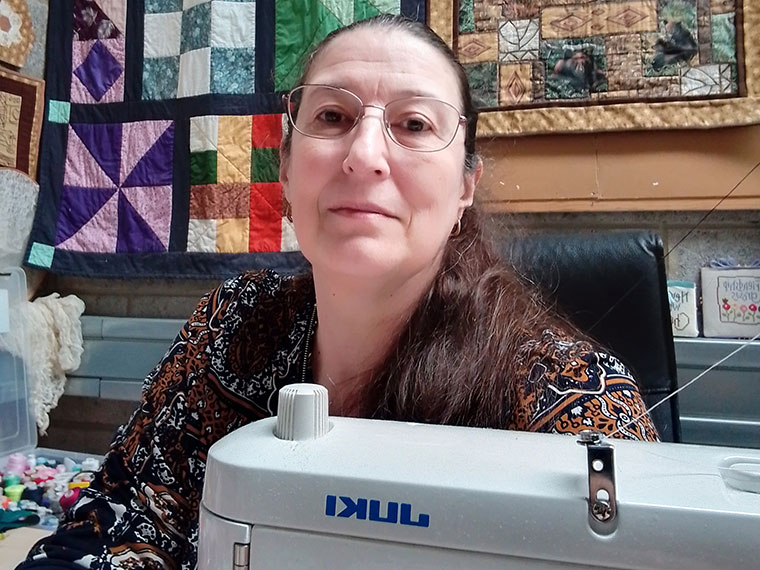
Jane Galley
Jane Galley
BA (Hons) in Education and Professional Development
What attracted you to do the BA programme with us?
Education for me has always been lifelong. I home educated my boys, so there’s always been a teaching element there. I didn’t expect to be teaching now. My background is sewing and quilting, which I’ve always done and having the boys at home, I wanted to try to do something around them, which is when somebody then suggested that I teach what I do, so I started online classes. I knew what worked, and I knew I was good at what I did, but the reasons why I didn’t know.
So, I started doing community courses with the RNN Group when we came out of lockdown. I was what they called an unqualified teacher at the time, so that’s why I went to do the Level 3 Award, I really enjoyed that, so I moved on to do the CertEd, and then I’m away to finish my first year of the BA Programme.
I did it to prove to myself that I could do it, and to fill in the gaps from the CertEd. Doing the BA will finish everything off nicely and I like the learning side of it.
Jane is currently finishing her Bachelor of Arts degree while running her own business. She’s also gaining teaching experience by working within our FLEX departments with the pre and supported interns.
How does the course bridge theory with practical application?
With the practical side of it, it is us implementing it in everything we do. So, for the creativity module, we had to think of something that we don’t currently do and do it then back it up with theory. So, you had the theory side, which you then had to implement within your teaching, to then come back and reflect on and share it.
Everything you do within the course will impact your teaching practice.
Jane Galley“They [the tutors] get to know their learners, get to know what their background is, what they’re dealing with, and they’re supportive.”
How do lectures and tutors facilitate learning and provide feedback?
There has always been support there for me, I have had a support plan in place and Sarah, Beth and Dave have no issues with this. When you know you’ve got that behind you, it makes it easier.
Beth has two roles; she is a tutor, but she’s also student support, so they get to know their learners, get to know what their background is, what they’re dealing with and they’re supportive. They will tell you where to find things, and they don’t let you struggle on your own. If you need anything extra, you know you can always email in.
Knowing you’ve got that supportive network makes a big difference.
How do you find balancing academic commitments with your day-to-day life?
I’ve got a grandson, 18 months old, so it can be a struggle, but I break it up to make it more doable. I have my studio day once a week and I think the first year doing the BA, in the first term, it was a case of seeing how I could work. Because up until September, I was doing learning support, meaning I was in college for 25 hours.
I then took the jump in September to hand in my notice and go on Res to do the teaching. Trying to get a schedule that helped me physically, but got everything in during the first term was quite difficult, I modified it a bit for the second term because I had to then come into college for one day a week, so it’s that fine tuning all along to find the balance, and because of the support plan, I have an automatic two week extension which helped me even though I don’t always use it, but it’s there when you need it.
How are you finding the smaller class sizes at the University Centre Rotherham?
The reason I did it was because it was at University Centre Rotherham, because it was with people I knew and was familiar with. I probably wouldn’t have done it if I had gone to a different University. I went to University Centre Rotherham for the familiarity of the place, the people and the tutors, I knew what to expect.
Jane Galley“I want to show people, especially women, that it’s never too late, and there’s always a chance to learn.”
What advice would you give someone considering going onto the BA programme, or any of our education programmes?
Even if you don’t become a teacher after it, it helps you understand human behaviour a lot. If you’ve got a family, knowing how your children’s brains work and why they work a certain way, it’s a fascinating thing just to do on its own, but obviously if you are into teaching, then it gives you the extra sort of confidence to know that you’re doing the right thing, it gives you the tools you need to change things.
If you start at doing the certificate, as my idea was, to do that to see if I was interested. It was because of a tutor’s faith in me that helped me get the cert. Because I’d come through a circuitous route, I hadn’t got a degree, I hadn’t done anything before. So on industry practice, she was able to take me on. It was her confidence that I could do it, and I think everybody needs that.
What has been the most positive/fun aspect of your experience studying with us?
I think it’s the relationships you build up with people. For me, it’s also the personal satisfaction of knowing that I can do it. It also highlighted to my boys that you never stop learning.
I would have been 55 when I started doing this journey, so I’ll be 60 by the time I finish the BA programme. Now I think it’s a race between me and my eldest to do the Masters! I want to show people, especially women, that it’s never too late, and there’s always a chance to learn.
University Centre Rotherham recognises that adult education is a powerful tool for personal growth, economic resilience, and social cohesion. Across the region and UK, adults are gaining the skills to progress in their careers, build confidence, and connect with others. The impact reaches far beyond the classroom as employers’ benefit from a more adaptable workforce, communities grow stronger, and society becomes more inclusive.
With the right support, course and training, adults through adult learning can address multiple challenges at once – from closing skills gaps and tackling social isolation to reducing inequality and strengthening communities.
University Centre Rotherham – working to transform lives, empower communities, and drive sustainable growth.

